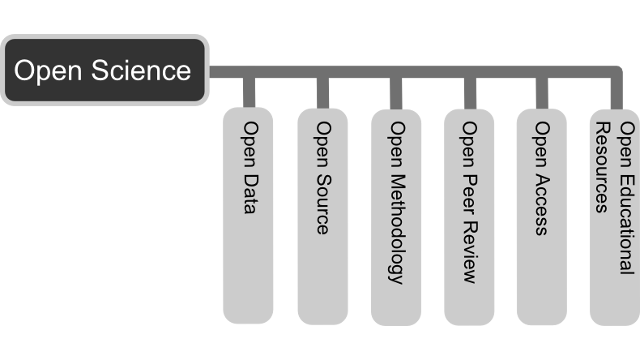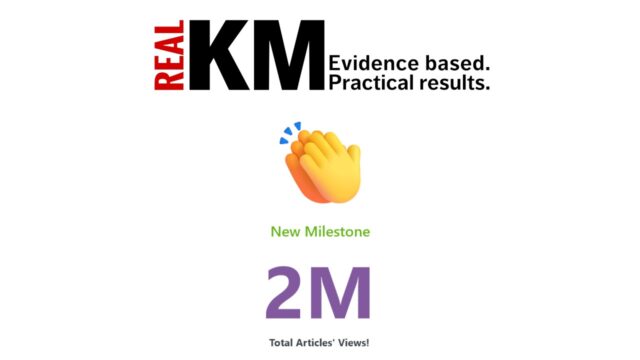
Significant new developments in open access to research findings
I admit to finding it incredibly hard to access literature since leaving [my university role]. The paid journal framework has a lot to answer for.
A knowledge management practitioner, 10 February 2024.
This is a commonly reported experience. Knowledge management (KM) practitioners are keen to use research findings as part of their evidence-based practice, but are often stymied by academic journal paywalls that require them to pay an expensive fee to read research papers. As I’ve previously reported, less than a third of ranked KM and intellectual capital journals are open access1, which enables research papers to be read by anyone for free. This limited open access to KM research means that KM practitioners can’t readily access a large proportion of the research findings that could help them with their work.
As I’ve previously alerted, hiding KM research findings away behind journal paywalls constitutes apparent hypocrisy by KM researchers because knowledge sharing is promoted as a fundamental of KM. One of the most profound examples of this knowledge hiding by KM researchers is the recently published research paper “Knowledge hiding – a systematic review and research agenda,” which is itself hidden behind the Journal of Knowledge Management paywall.
As a proactive counter to this knowledge hiding, RealKM Magazine has since its inception made its content freely accessible, and will continue to do so, and requires article authors to use only open access research and information as sources or references. We have also published numerous articles presenting various open access perspectives, including the open access to scholarly knowledge in the digital era series.
I acknowledge that there can certainly be difficult issues that arise when attempting to bring about workable open access. One such set of issues relates to article processing charges (APCs)2. Publishing in an open access journal or publishing an open access paper in a paywalled journal often requires the payment of an APC (with some notable exceptions, for example the Knowledge Management for Development Journal which is free for both authors and readers). APCs can be as much as a few thousand dollars. This cost is borne by either the author, their institution, or the body funding the research. It can be completely unaffordable for authors, or if paid institutions or funders, can heavily impact research budgets.
However, I continue to argue that the impediments to open access need to be treated as challenges to be overcome rather than insurmountable obstacles. Fortunately, thinking in this way is now bringing about some very significant outcomes. Two notable new initiatives are Australia’s world-first open access model and the refreshed Gates Foundation Open Access Policy.
Australia’s world-first open access model
An article in The Guardian reports3 that the world-first open access model of Australia’s chief scientist, Dr Cathy Foley, has been recently finalised for the Australian Government. I had previously mentioned this innovative model in a RealKM Magazine “In the know.”
Dr Foley’s open access model would provide a centralised digital library for all Australians to access research papers free of charge, as long as they had a MyGov account or were in education. It is currently under departmental consideration. It relies on universities, publishers, stakeholders, and the Australian Government to agree. In an encouraging sign, major journal publisher Elsevier is already supportive.
Around the world, open access transformative agreements4 which address a range of issues including APCs are being negotiated between institutions and particular publishers. If it goes ahead, Dr Foley’s model will take open access a big step forward beyond this, making Australia the first country in the world to have a single relationship with all publishers.
Refreshed Gates Foundation Open Access Policy
The Bill & Melinda Gates Foundation, a notable funder of development sector research, has announced5 an updated policy for open access to scientific research, which it says comes after a decade of experiences and learnings. The refreshed policy will come into effect on 1 January 2025.
At its core, the refreshed 2025 policy6 will:
- end the Gates Foundation’s payment of individual article publishing fees such as APCs
- require grantees to share preprints of their articles.
Preprints7 are versions of a scholarly or scientific paper that precedes formal peer review and publication in a peer-reviewed journal. A well-known example is arXiv. The Gates Foundation contends that requiring grantees to share preprints is breaking free from journal constraints while prioritizing access to research and preserving grantee publishing choices.
Preprint publishing can also open papers up to beneficial reader comment and review8, in contrast to the oft criticized traditional processes of peer-review. Research further shows that published versions of papers in costly academic journals add almost nothing9 to the freely-available preprints they are based on.
At present, the field of KM research doesn’t have a dedicated preprint server. It’s time it did.
Header image source: Wikimedia Commons, CC BY-SA 3.0.
- Wikipedia, CC BY-SA 4.0. ↩
- Wikipedia, CC BY-SA 4.0. ↩
- Cassidy, C. (2024 March 10). Australia’s chief scientist takes on the journal publishers gatekeeping knowledge. The Guardian. ↩
- ESAC Initiative. (n.d.). Transformative Agreements. ↩
- Torok, E. (2024, March 27). Who loses when scientific research is locked behind paywalls? Bill & Melinda Gates Foundation. ↩
- Bill & Melinda Gates Foundation. (2024, March 27). Policy Refresh 2025 Overview. ↩
- Wikipedia, CC BY-SA 4.0. ↩
- Pontille, D., & Torny, D. (2020). Peer Review: Readers in the Making of Scholarly Knowledge. In Eve, M. P., & Gray, J. (Eds.) Reassembling scholarly communications: Histories, infrastructures, and global politics of Open Access. MIT Press. ↩
- Grappone, T., Farb, S. E., Broadwell, P., & Klein, M. (2016, June). Comparing published scientific journal articles to their preprint versions. In Digital Libraries (JCDL), 2016 IEEE/ACM Joint Conference on (pp. 153-162). IEEE. ↩






